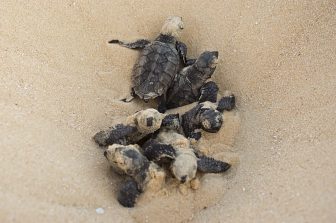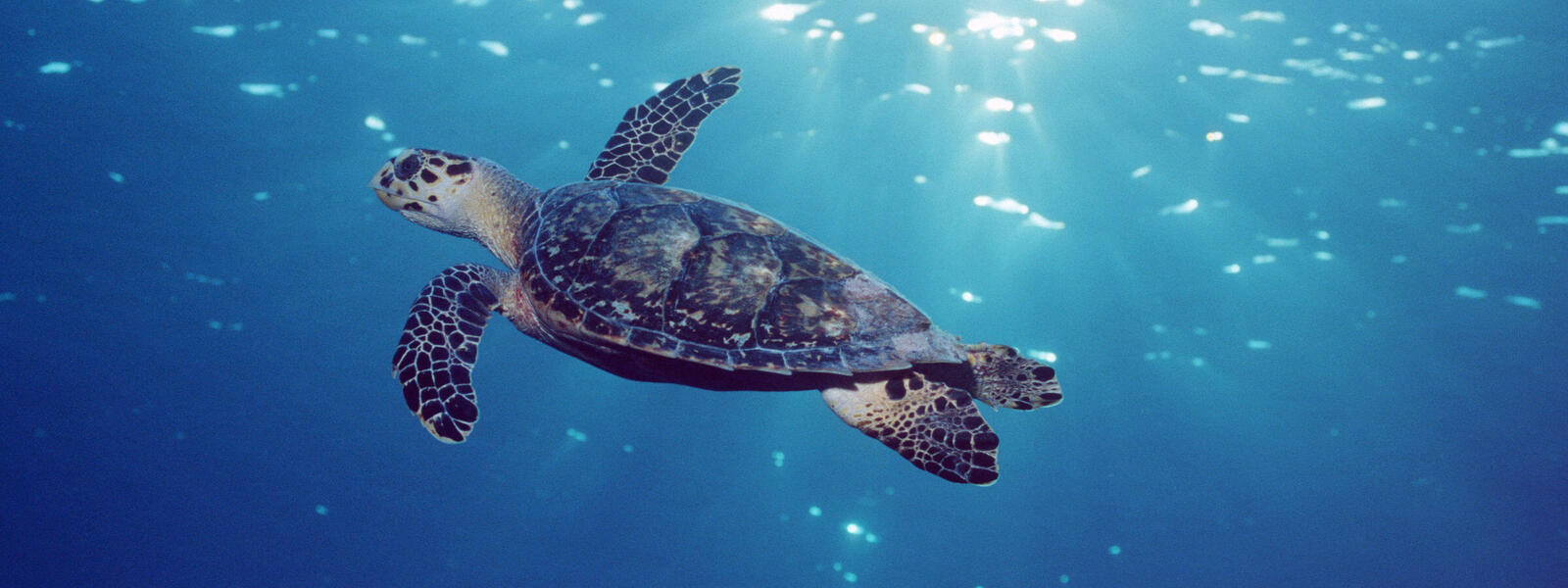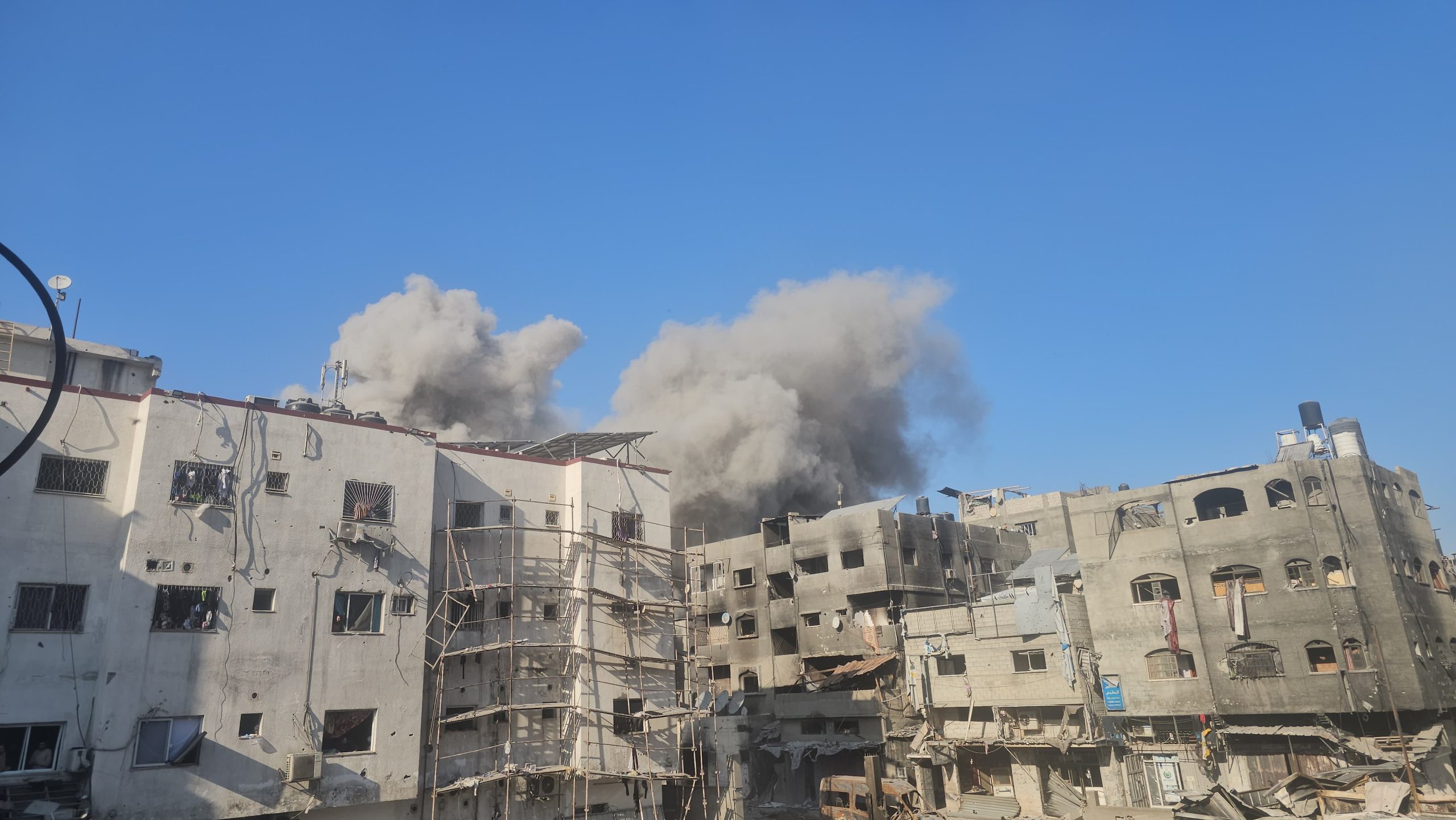A total of 31,586 baby turtles were released throughout 2019-2021.
Qatar has helped release over 31,000 hawksbill baby turtles in less than three years from the specially demarcated area of Fuwairit Beach as part of the nation’s project to protect endangered species.
Hawksbills are critically endangered sea turtles belonging to the Cheloniidae family. They are mainly threatened by the loss of nesting and feeding habitats, excessive egg collection, fishing-related mortality, pollution and coastal development.
The wildlife trade also plays a significant role in their endangerment. Given their beautiful, spotted shell, Hawksbill scales are still widely used and polished into decorative and functional objects.
Currently, the turtles are believed to be the most endangered of the seven species of sea turtle, with fewer than 25,000 nesting females left globally, according to the National Geographic.
For that reason, experts and researchers in Qatar have stepped in to help save the turtles through adopting programmes and plans to guarantee their protection, sustainability and growth—most prominent of which is during the mating season.
Their mating process takes place every two years starting from late March to early April. Females leave the sea and hunt for suitable nesting grounds to lay their eggs. After two months, the eggs start to hatch, birthing beautiful small sea turtles. The youngsters then rush instinctively towards the sea to begin their life journey.

Luckily, the Gulf nation hosts several spots female turtles deem suitable to lay their eggs, including Fuwairit, Lehwaylah, Ras Laffan, Al Ghariyah, Al Maroona, Al Mafeer, Haloul, Sharaawah, Rukn islands and Umm Tees.
The most commonplace for hatching, however, is said to be Fuwairit, given its safe atmosphere and soft sand.
To ensure the nesting process is successful and safe for the endangered species, Qatar’s Ministry of Environment and Climate Change mobilses all efforts every year to protect the hawksbill turtles during the hatching season.
Opinion: What it will take to save Qatar’s Hawksbill turtles
Authorities close Fuwairit beach to the public during nesting season to closely monitor the turtles and protect them from any harm, given their importance to the region’s ecosystem.
Several experts are also assigned to monitor the progress and record data for future research purposes, including taking DNA samples from the turtles and affixing tracking devices.
Since 2019, the ministry has treated hundreds of injuries before returning them to the sea.
In the last three years, 31,586 baby turtles were safely released into the ocean. The year 2020 hit a record of 119 nests, with 9,416 baby turtles released in the season alone.
The protection project is funded by Qatar Petroleum and is being undertaken by the Environmental Science Centre at Qatar University under the ministry’s supervision.
It covers the country’s northeastern beaches (Ras Laffan, Al-Huwaila, Jassassiya, Maroona, Fuwairit, and Al-Mfier).
Follow Doha News on Twitter, Instagram, Facebook and Youtube







